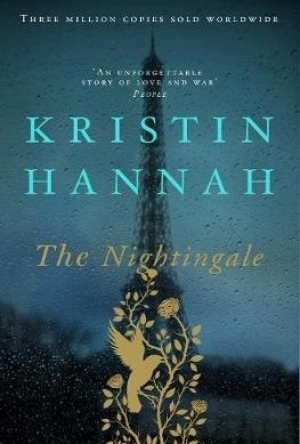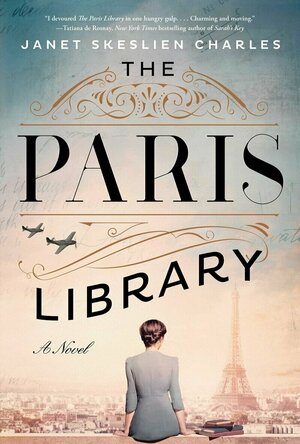Nadya R (9 KP) rated The Nightingale in Books
Jul 2, 2018
Kristin Hanna leads us through the dangerous way of Isabelle Rossignol - The Nightingale why fly to the freedom. She is one of the most active person in the Resistance. Fully opposite to her is her sister Vianne. She is humble and mild tempered she doesn’t want to be a hero. Her only wish is to survive the war together with her family. The Rossignol sisters were abandoned by their father (veteran of WWI) after their mother dead. Soon Vianne met Antoine and has a family with him. While Isabelle’s rebellious temper doesn’t allow her to accept her father decision and escape from every boarding school, she was sent to, and continue to go back to her father and to fight for his love. Exactly this part of her character made her The Nightingale- a woman equal to the men.
"Women were integral to the Resistance. Why couldn't men see that?"
On the other side Vianne doesn’t want to take part in the war. She doesn’t rise her voice, doesn’t ask questions. She’s been comfortable to the Nazis. And that is her point- been quiet and invisible means that you will survive. But as much as you want to close your eyes for injustice there is a breaking point - all these brutalities and injustice make us leave our ‘comfortable’ lives in the name of hundreds of saved lives.
The rebellious in Isabelle takes her to the centre of the French Resistance. First- used as a courier, she prove herself and began an important member in no time. Exposing her life to danger, she leads a pilot after a pilot through the high peaks of Pyrenees to their freedom. Meanwhile Vianne is living with Nazi officer, when one day the war bent her. She initiated a mission to save the Jews children.
"Vianne started them off on a song and they picked it up instantly, singing loudly as they clapped and bounced and skipped. Did they even notice the bombed out buildings they passed? The smoking piles of ribble that had once been homes? Or was destruction the ordinary view of their childhoods, unremarkable, unnoticeable."
But the war left its mark on all these kids, forced them to grow up fast and even in very young age they have already seen all these misfortunes in the world.
"Really, Maman? How long must we pretend?" The sadness-and the anger-in those beautiful eyes was heartbreaking. Vianne apparently had hidden nothing from this child who'd lost her childhood to war."
The author doesn’t save anything. At the end of the book she takes us to the Ravensbrück - the concentration camp in Germany for women why took an action against the Nazis. It’s known as one of the most brutal of them all. The picture, the author shows us, are breathtaking. All these tortures, rapes all these things that they did to women... I kinda felt it son deep and personal. I am not really able to write about this.
And at the end let’s speak about the love in the book. Here you can find lots of love.
Love of country.
Mother love.
Sisters love.
Love in the wartime is strong but faded at the same time. Set on the background, love is there but she(love) realises that in this times there is no place for blind love stories. On other hand this love is even stronger.
Every stolen second.
Every kiss is unspoken ‘Goodbye'.
Every meeting may be the last one.
".. a broken heart hurts as badly in wartime as in peace. Say good-bye to your young man well."
When it comes to war we imagine all these men risking their lives in the name of their country. But this is the story about war but trough women’s view. A women’s war on the shadow. Taking a risk of being caught and executed they keep delivering the message between the Resistance members. They are the connection between all pieces of the puzzle.
"Men tell stories. Women get on with it. For us it was a shadow war. There were no parades for us when it was over, no medals or mentions in history books. We did what we had to during the war, and when it was over, we picked up the pieces and started our lives over."
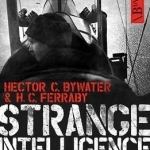
Strange Intelligence: Memoirs of Naval Secret Service
H.C. Ferraby and Hector C. Bywater
Book
Hector C. Bywater was perhaps the British secret service's finest agent operating in Germany before...
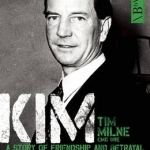
Kim Philby: A Story of Friendship and Betrayal
Book
Foreword by Phillip Knightley Kim Philby, the so-called Third Man in the Cambridge spy ring, was the...
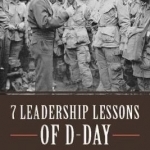
7 Leadership Lessons of D-Day: Lessons from the Longest Day-June 6, 1944
Book
The odds were against the Allies on June 6, 1944. The task ahead of the paratroopers who jumped over...
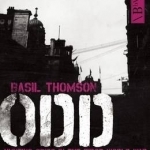
Odd People: Hunting Spies in the First World War
Book
First World War espionage was a fascinating and dangerous affair, spawning widespread paranoia in...

Sweat: Kayla Itsines Fitness
Health & Fitness and Lifestyle
App
Sweat with the Kayla Itsines BBG Program and join the world’s biggest female fitness community and...
6529: German Soldier on the Western Front 1914-1918
Book
WWI came to be known as the 'War to End All Wars', though alas this didn't turn out to be true....
![The Paris Network [Audiobook]](/uploads/profile_image/adb/dee0596d-e0e8-4650-b71f-ea5ec5ec6adb.jpg?m=1645979041)
The Paris Network [Audiobook]
Book
Paris, 1940: He pressed the tattered book into her hands. ‘You must go to the café and ask at the...

Art Of War By Sun Tzu
Business and Education
App
We have fixed formatting issues and are re-introducing Art Of War For Free with the bug fixes. ...
ClareR (6062 KP) rated The Paris Library in Books
Mar 2, 2021
In 1930’s - 1940’s Paris, we follow Odile, a young woman who wants to be a librarian in the American Library. She gets her dream job - much to her parents dismay. She meets and falls in love with a young police officer, but life begins to get much more difficult when the Germans invade France, occupying Paris. Odile’s twin brother is imprisoned in a camp after he is captured on the front, and her Jewish subscribers at the library are forbidden from going there. Odile’s wartime experiences are fascinating to read about, and I really enjoyed these flashbacks.
We also meet Lily in the 1980’s - Odile’s neighbour in the small Montana town that they both live in. They become good friends when Lily decides that she wants to write a school report about France during the Occupation. Odile teaches Lily to speak French, and they share a love of books. Odile becomes a grandmotherly figure in Lily’s life, and I loved the relationship between the two of them.
I found this book so interesting: when I was reading about Lily, I was desperate to know what would happen in the next Paris flashback, and when I was reading about Odile’s Paris, I wanted to know what would happen to Lily in her next section. I would say that this is the sign of a good book!
The Parisian sections weren’t gratuitously violent - in fact the Nazi heading the library department of the invading forces seemed to be a reasonable man. It’s made clear that the characters don’t like the Germans, and we’re told that Jews go missing, but the German’s themselves are very low key. This is about Odile’s experience, and Lily’s life in the 80’s. And the power of books.
The bravery of the Parisian librarians was admirable, especially as they could have been imprisoned or killed if their acts of resistance had ever been revealed.
I wouldn’t hesitate to recommend this book - it was a pleasure to read.
